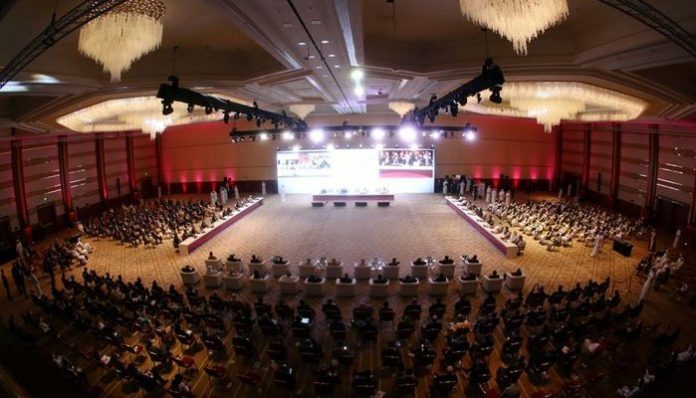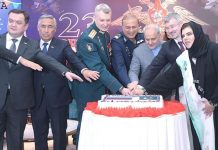ISLAMABAD: In order to safeguard against the risk of any breakdown in long-sought peace talks that kickstarted last month in Qatar, Taliban and Afghan peace negotiators have set new ground rules as they negotiate to bring an end to decades of war.
A British wire service, while quoting sources, reported that the breakthrough was achieved with the help of US officials. The two sides drew up 19 ground rules that their negotiators should observe during talks.
While the talks have been taking place in Qatar’s capital Doha, scores of Afghan soldiers and Taliban fighters have been killed in clashes and suicide attacks in which dozens of civilians have also died in recent weeks.
“Firming up a code of conduct was extremely crucial as it proves that both sides are willing to continue talks even as we see that violence has not reduced on the ground,” said one senior Western diplomat on condition of anonymity.
After reports emerged that the parties had set the ground rules, the Afghan government negotiating team tweeted that the report was “incorrect”, without elaborating.
When asked about the tweet, a senior official involved in the talks on the government side said officials objected to any implication that a formal agreement had been reached, but did not deny some ground rules had been set.
Official sources involved in the peace process were quoted as saying that the breakthrough came during a trip on Monday by Afghan President Ashraf Ghani to Qatar’s capital Doha. Ghani held talks there with Qatari leaders as well as US Special Envoy Zalmay Khalilzad and the commander of US and Nato troops in Afghanistan, General Austin Miller.
The intra-Afghan talks are part of a landmark deal signed between the United States and the Taliban in February.
Under the deal, foreign forces will leave Afghanistan by May 2021 in exchange for counter-terrorism guarantees from the Taliban, which agreed to negotiate a permanent cease-fire and a power-sharing formula with the Afghan government.
Diplomats were quoted as saying that the talks got off to a difficult start, with disagreements over how the Hanafi Islamic code could be used to guide negotiations and on whether the deal signed between the United States and the Taliban in February should be the basis for the talks, as demanded by the Taliban.
The sources were quoted as saying that the delegations were putting those differences to one side to move forward and agree on an agenda, but would work on resolving these issues during negotiations.
“The ground rules will serve as a foundation as both sides are making an effort to prevent a collapse,” said a second senior official in Doha overseeing the talks. A ceasefire is a top priority for the Afghan officials and the western diplomats who are facilitating these talks.
However, some analysts say the Taliban would not agree to a comprehensive ceasefire yet, since violence and clashes with Afghan forces give them leverage at the negotiation table.
Facebook:
After reports emerged that the parties had agreed on the ground rules, the Afghan government negotiating team tweeted that the report was “incorrect”, without elaborating.
When asked about the tweet, a senior official involved in the talks on the government side said officials objected to any implication that a formal agreement had been reached, but did not deny some ground rules had been set.
Tweet 1: A British wire agency, while quoting sources said that the two sides drew up 19 ground rules that their negotiators should observe during talks
Tweet 2 : The intra-Afghan talks are part of a landmark deal signed between the United States and the Taliban in February

















